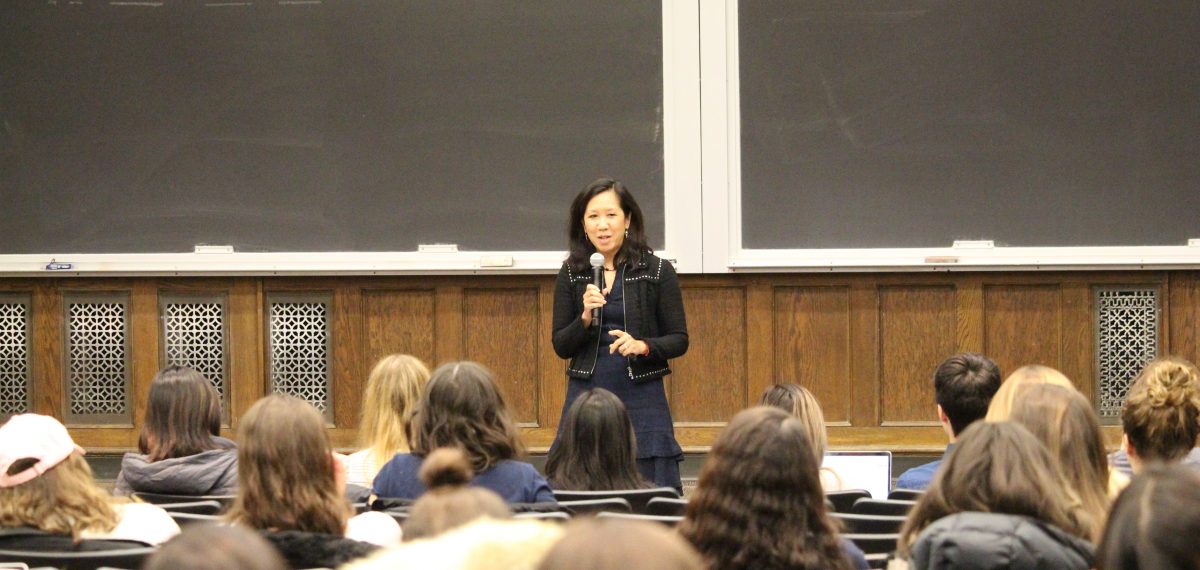
Economists are used to talking about treating recessions with policies that generate demand-side multipliers for the interdependent relationships we can see and measure in the market economy. But they never talk about “supply-side multipliers” which are about the interdependent, interpersonal relationships that affect people’s ability and availability and choice to supply labor to the market economy, which are largely invisible because that potential labor is still stuck at home, in unpaid household work, or held back from its full potential in underpaid market work.
Economists don’t know the income and price elasticities that would tell us what kind of policies would draw more of the people who currently don’t work in the market economy into the economy (and into GDP). But there’s clearly something way higher-order and more fundamental/foundational than the normal market sensitivities/responses going on when it comes to the potential role government could play in supporting the caregiving economy, in increasing not just economic activity but our economic potential (as in potential GDP).
If quality caregiving is available and affordable to families, that gives more freedom for mothers (or fathers, or adult children of elderly parents) to choose to stay at home or go to work. Government support of caregiving (subsidies to the “care economy”) should be made unconditional on who provides the care (the family or the market) to qualifying family members—children or elderly or the otherwise infirm.
Because we’ve never seen an economy with all those “supply-side multipliers” on, it’s silly for economists to scoff at the notion of “caregiving infrastructure” or suggest that investing in it would “overheat” the economy. We can’t overheat parts of the economy that haven’t even made it to the stovetop! Economists simply do not know how much our economy is capable of producing when all people could be unconstrained and encouraged by government policy the way white men’s work has always been. The “baseline” built into all our models of the economy is based on the white-male-dominated market economy we are used to seeing. (White people dominate population-based economic measures like the unemployment rate because they’re still the vast majority of the population; white men (and their roles in the economy) dominate dollar-based economic measures like GDP because they earn the highest incomes.) A Politico story on the Biden infrastructure plan highlights this “white man ignorance”:
And former New Jersey Gov. Chris Christie snickered about the vast federal outlays on child and elder care. “Now the ‘care economy’ is infrastructure,” he said on ABC’s “This Week.” “The care economy. I don’t even know what the hell the care economy is.”
https://www.politico.com/news/2021/04/07/biden-build-back-better-bill-479522
This recession has been like no other due to the adverse effects via the supply side, not just the demand side, of the economy. If we want a robust recovery that actually takes our economy to a better place in the longer run—perhaps even better and stronger than if we had not gone through the pandemic—we need to fire up the “supply-side multiplier“ policies and stop viewing policies that support families as simply the old demand-side stimulus tools.
I recently spoke on a NABE webinar (video link here) about the Biden Administration’s “American Jobs Plan” (aka the “infrastructure” package) and was asked ahead of time to talk about a couple things I like best about the plan and a couple things I don’t like. What I like:
- The focus on infrastructure spending as something good for expanding the supply-side, productive capacity of the economy and not just a quick way to create jobs and increase demand for goods and services;
- The recognition that this kind of government spending that has longer-term economic benefits should be worth paying for, either through higher taxes now or higher debt that would require higher taxes later.
And two aspects that I’m less happy about:
- That the notion of “infrastructure” investment in at least this first part of the recovery and rebuild package is mostly limited to building structures (things) rather than investing in people. This seems stuck on the old economists’ notion that “if we build it, the people will come.” But it’s the “people will come” part that’s been severely curtailed in the pandemic recession. I would have rather seen the Biden Administration lead with the investments in people who are the ultimate source of economic productivity. We have to have human capital before we generate other kinds of capital, and cultivating and moving human capital is far more challenging than attracting financial capital and building (mere) “things.” Could we work on the hard part first, and let the easy part follow?
- That economists and policymakers are so focused on the main downside of the package being the tax increases that could reduce incentives for private-sector economic activity rather than recognizing the tax increases will pay for public investments with greater positive economic benefit than the tax cuts were. That old-school, old-model view (based on the white-male-dominated economy) is that marginal tax rate increases are bad and public spending has no benefit. But the white-male-dominated parts of the economy are already living up to (or extremely close to) their potential. They are maxed out and cannot do much better. The less successful, more constrained, underserved parts of our society are operating far from their economic potential, where the marginal gains to be had are still high.
In today’s economy, and importantly for tomorrow’s potential economy, investing more in people (and care for kids and elders, no matter how it’s provided) is not just being “nice” to families. It’s being smart about what will take our economy to its full potential. A more inclusive and equitable economy is a larger, stronger, and more resilient economy. In the Biden Administration’s “Build Back Better” plan, it is the emphasis on the investments in people—all people, not just the ones who have been most successful in our economy thus far—that will not just get our economy back to where it was pre-pandemic, but actually to a better place. The pandemic has been a terribly challenging time, but in the process we’ve also learned a lot about how our economy works, or doesn’t work—and how much the market economy (in all times) relies on unpaid or underpaid and largely “invisible” caregiving work.

